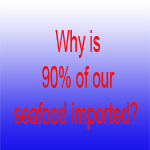San Francisco Chronicle
Friday, December 11, 1998
New outboard motors and jet skis, among the last unregulated sources
of water and air pollution in California, must change their harmful ways,
state air quality regulators ruled yesterday.
Despite protests from boat owners, dealers and manufacturers, the state
Air Resources Board approved new rules that for the first time will sharply
cut pollutants from engines used in outboard motorboats and personal watercraft.
Environmental groups applauded the board's action. ``It's a win for
the environment,'' said Russell Long, executive director of the Bluewater
Network, a coalition based in San Francisco that had advocated somewhat
stricter standards.
`While not as strong as we had originally hoped, it is a pretty good
start.''
The rules are intended to reduce emissions that agency scientists contend
have a major effect on air quality. For example, they said, a jet ski operated
for one hour generates as much smog- forming pollution as a new 1998 model
car does in a year.
The regulations will have another benefit: reducing the amount of MTBE
and other gasoline components that are dumped into state drinking-water
reservoirs. Between 20 percent and 30 percent of the fuel in some two-
stroke engines is emitted unburned into the environment.
The rules will apply only to new engines beginning in the 2001
model year and will be tightened in stages through 2008. Marine engines
sold in California will be 70 percent less polluting by 2001 and 90 percent
by 2008.
The rules were adopted by a vote of 8 to 0, with three members of the
state air board not present. Agency regulators will enforce the new rules.
The plan puts California five years ahead of the marine engine standard
adopted by the U.S. Environmental Protection Agency, and will make manufacturers
meet in 2001 the emission levels that EPA is requiring in 2006.
The rules had met with a wave of opposition from engine manufacturers,
boat dealers and boat owners, who predicted that the rules would make boat
engines too expensive for many consumers and hurt the $11 billion a year
boating industry in California.
Industry representatives stressed that they are in favor of cleaner
engines, saying manufacturers already have invested $500 million to retool
their products. And most industry representatives supported the state's
pollution-reduction targets through the 2006 model year.
But reaching the strictest standards, which go into effect in 2008,
would double the average cost of an outboard engine to $14,000, they
said. Such a price increase would cause an 80 percent drop in new engine
sales, costing the industry $325 million a year, according to an industry
study.
``Our product is very price sensitive,'' said Robert Wyman, representing
the National Marine Manufacturers Association, which commissioned the analysis.
To illustrate the threat, John Jay, owner of Best Marine in Milpitas,
said his business suffered a 30 percent drop in sales after Lake Tahoe
officials, concerned about high levels of the gas additive MTBE, announced
a ban on two- stroke outboard and jet ski engines beginning in June.
Jay said that for the first time since 1987, he had to borrow money
from a bank to get through the year. ``These people could regulate me out
of business,'' he said.
Air Resources Board members stressed their concern for the boating industry,
particularly small businesses like Jay's. But for the most part, the board
and its staff dismissed the industry's characterization of the potential
effect of the rules as greatly exaggerated.
By the staff's own calculations, the regulations will raise prices
on marine engines between $150 and $2,000, depending on the model, but
no more than 14 percent. And some of that money would be recovered in their
higher fuel efficiency.
In a 90-page report on the regulations, the board's staff concluded
that the effect on cost would be ``insignificant.''
Air quality officials also noted that many reservoirs around the state
have begun to limit high polluting engines out of concern about MTBE. Being
able to offer cleaner-burning engines may actually boost sales, they said.
In any case, they said the air quality benefits are unmistakable. On
a summer weekend day, marine engines generate nearly 800 tons of smog-forming
pollution, as much as all the cars in the Los Angeles basin on an average
day.
Statewide, the new rules will reduce air pollution by an average of
110 tons a day, which is as much as the state's smog-check program.
In a separate development, a state advisory panel concluded yesterday
that there is not sufficient information to warrant listing the gasoline
additive MTBE as a carcinogen under the state's anti- toxics law known
as Proposition 65.
On Wednesday, another advisory panel came to a similar conclusion on
the question of whether MTBE is a reproductive toxin.
Officials of the Oxygenated Fuels Association, which represents makers
of MTBE, welcomed the decision.
`With its decision today, (the state) joins experts around the globe
who have concluded that MTBE is not a cancer-causing agent," said Terry
Wigglesworth, the association's executive director.
 for
a link to an article reviewing potential OBM/boating impacts for
a link to an article reviewing potential OBM/boating impacts
 for
a link to the Executive Summary and Introduction to the Workshop Proceedings for
a link to the Executive Summary and Introduction to the Workshop Proceedings
 for
a link to a NJ FishNet focused on boating impacts for
a link to a NJ FishNet focused on boating impacts
|


